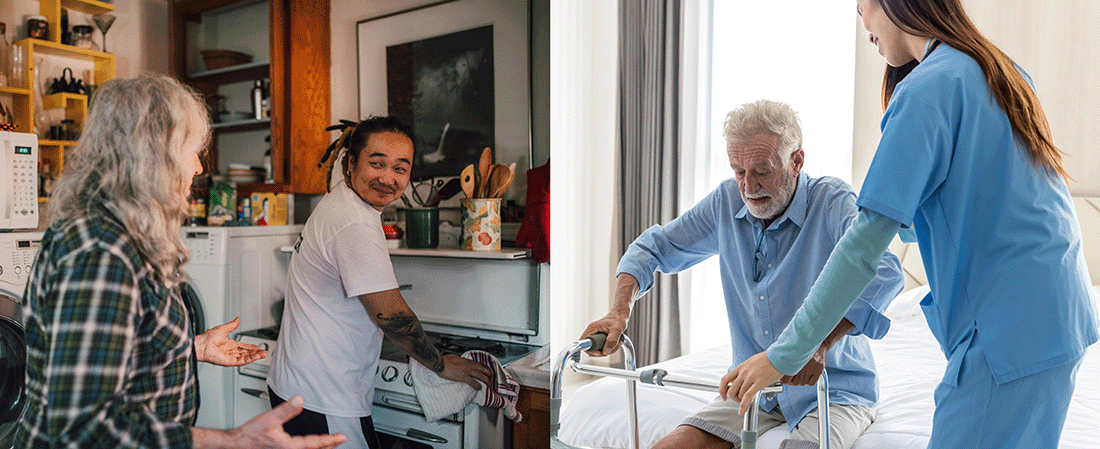
When you begin exploring in-home care for a loved one, you'll quickly encounter a wide range of terms. The world of senior care can seem complex, but understanding the options is the first step toward finding the perfect support for your family.
Two of the most fundamental types of care we provide at Compassion Network Home Care are Companion Care and Personal Care.
While they often work together, they meet distinct needs. Knowing the difference is key to creating a care plan that truly enhances your loved one's quality of life. Let's break it down.
Understanding Companion Care: The Focus is on Connection
Think of a companion caregiver as a supportive friend who helps with daily life and, most importantly, provides social and emotional connection. The primary goal of companion care is to combat loneliness, ensure safety, and improve overall well-being through interaction and assistance with everyday tasks. This is a "hands-off" service.
A companion caregiver typically helps with:
- Engaging conversation and friendship
- Meal preparation and sharing meals together
- Light housekeeping, laundry, and tidying up
- Running errands like grocery shopping or picking up prescriptions
- Accompaniment to appointments, social outings, or community events
- Playing games, reading, or enjoying hobbies together
- Providing medication reminders
Companion care is often the perfect choice for seniors who:
- Live alone and are feeling isolated or lonely.
- Are recovering from an illness or injury and need some basic help around the house.
- Have stopped driving but want to remain active in their community.
- Need a little help to keep their home safe and organized.
Understanding Personal Care: The Focus is on Hands-On Support
Personal care involves direct, "hands-on" assistance with what are known as Activities of Daily Living (ADLs). These are the fundamental tasks of self-care that are essential to a person's health and dignity. This type of care is provided by our trained and certified Health Care Aides (HCAs).
A personal caregiver provides all the services of a companion, PLUS hands-on support with:
- Bathing and showering: Ensuring safety and hygiene in the bath or shower.
- Dressing and grooming: Assisting with getting dressed, buttoning shirts, shaving, and hair care.
- Toileting and incontinence care: Providing dignified assistance with using the restroom.
- Mobility assistance: Helping a client safely get out of bed, a chair, or move around the home. This is often called "transferring."
- Feeding assistance: Helping clients who have difficulty feeding themselves.
Personal care is essential for seniors who:
- Have mobility challenges that make bathing or dressing difficult.
- Are living with a chronic condition like Parkinson's, or the effects of a stroke.
- Are navigating the middle-to-late stages of dementia.
- Are at a high risk of falling and need steady support to move safely.
The Easiest Way to Tell the Difference
The simplest distinction is this: Companion Care is "hands-off," while Personal Care is "hands-on."
If your loved one primarily needs social interaction and help with household tasks, companion care is the answer. If they require physical assistance with personal routines like bathing or dressing, they need personal care.
They Often Work Together
It’s important to remember that care is not always one or the other. Many of our clients start with companion care for a few hours a week. As their needs evolve over time, we seamlessly integrate personal care into their customized plan. Our approach is flexible and designed to adapt to your family's changing needs.
How to Choose the Right Care
You don't have to make this decision alone. Understanding these services is the first step, and the next is a simple conversation.
If you're unsure what level of support your loved one needs, contact Compassion Network Home Care today. We offer a complimentary, no-obligation care consultation to help you assess the situation and recommend a plan that provides safety, dignity, and peace of mind.




